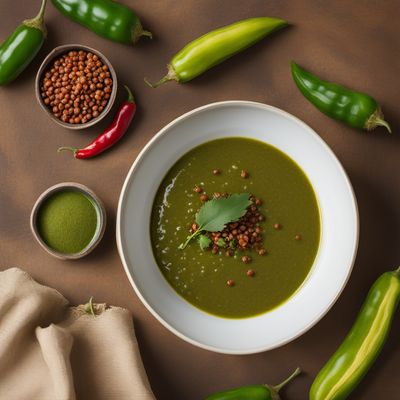
Ingredient
Well water
The Pure Essence: Exploring the Benefits of Well Water
Well water is sourced from underground aquifers and is known for its purity and natural mineral content. It is typically free from chemicals and additives found in tap water, making it a popular choice for those seeking a healthier alternative. Well water has a crisp and clean taste, with a refreshing quality that enhances the flavors of food and beverages. Its texture is smooth and light, making it enjoyable to drink and cook with. In appearance, well water is clear and transparent, showcasing its pristine quality.
Origins and history
The use of well water dates back to ancient civilizations, where wells were dug to access underground water sources. Throughout history, wells have been vital for communities, providing a reliable and sustainable water supply. In many cultures, wells hold cultural and historical significance, symbolizing life, purity, and community. Today, well water continues to be a valuable resource, especially in rural areas where access to municipal water systems may be limited.
Nutritional information
Well water is naturally low in calories and does not contain any added sugars or artificial ingredients, making it a healthy choice for hydration. It is also a good source of essential minerals such as calcium, magnesium, and potassium, which are important for maintaining overall health and well-being.
How to select
When selecting well water, it is important to ensure that the source is reliable and properly maintained. Look for well water that has been tested for quality and meets the necessary safety standards. Additionally, consider the taste and odor of the water, as well as any visible impurities. If purchasing bottled well water, check for reputable brands that adhere to strict quality control measures.
Storage recommendations
Well water should be stored in clean, food-grade containers to maintain its freshness and quality. It is best to store well water in a cool and dark place, away from direct sunlight or heat sources. Avoid storing well water near chemicals or strong odors, as it can absorb these flavors.
How to produce
Well water is naturally produced through the process of rainwater seeping into the ground and being filtered through layers of soil and rock. To access well water, a well must be drilled or dug into the ground, reaching the underground aquifer where the water is stored. This process requires professional expertise and equipment.
Preparation tips
Well water can be used in various culinary applications, such as cooking, baking, and beverage preparation. It is particularly beneficial for making soups, stews, and broths, as it enhances the flavors of the ingredients. When using well water in recipes, consider its purity and adjust the seasoning accordingly. Additionally, well water can be enjoyed on its own as a refreshing and hydrating beverage.
Culinary uses
Well water is commonly used in cooking, baking, and beverage preparation. It is an essential ingredient in soups, stews, and broths, as it adds depth of flavor and enhances the overall taste. Well water is also used in making doughs, batters, and sauces, contributing to the texture and consistency of the final product. Additionally, it is a popular choice for brewing coffee, tea, and other beverages, as it allows the true flavors to shine.
Availability
Well water is commonly available in regions where wells are present, particularly in rural areas. It may also be available in some urban areas where well water is sourced from underground aquifers.
More ingredients from this category
Recipes using Well water

Mežerli - South Indian Style
Spiced Lentil Pancakes with Coconut Chutney
Vada Pav - Mumbai's Iconic Street Food Delight
Spicy Potato Fritter Sliders - Mumbai's Irresistible Street Snack

Pesara Dosa with Coconut Chutney
Savory Green Lentil Crepes with Creamy Coconut Chutney

Gooseberry Delight Chutney
Tangy Twist: Gooseberry Delight Chutney

Macanese Style Kadhi
Creamy Coconut Kadhi with Macanese Flavors

Punjabi Kadhi - A Tangy and Creamy Delight
Creamy Tanginess: Punjabi Kadhi Recipe

Boiled Crawfish with Spicy Cajun Sauce
Fiery Delight: Spicy Cajun Boiled Crawfish

Maharashtrian Style Stuffed Štruklji
Delectable Maharashtrian Stuffed Štruklji: A Fusion of Flavors

Makki di Roti with Sarson da Saag
Golden Cornmeal Flatbread with Spiced Mustard Greens

Boiled Maine Lobster
Ocean Delight: Boiled Maine Lobster with Zesty Lemon Butter